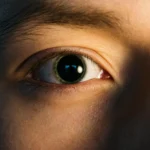October is Depression Awareness Month, a critical time to highlight the important connection between mental health and substance use disorder (SUD). The relationship between these two conditions is deeply intertwined, with many individuals depending on drugs and substances to deal with the overwhelming weight of mental health challenges, particularly depression.
This month serves as an opportunity to shed light on the importance of addressing both conditions in the path to recovery. It also reminds us to raise awareness, encourage open conversations, and emphasize early detection, treatment, and support for individuals struggling with depression.
The Link Between Depression and Substance Use Disorder
Depression is more than feeling sad or down – it is a serious mental health condition that affects the way people think, feel, and handle daily activities. It is common among people battling an addiction to drugs or alcohol. This addiction can trigger and intensify feelings of loneliness, sadness, and hopelessness.
“An estimated one-third of people with major depression also have an alcohol problem.”
Common Types of Depression
Major Depression
One of the most common types of depression, major depression affects about 7% of the nation’s population at any given time. Symptoms of this type of depression include extreme sadness, lack of energy, changes in sleeping patterns, and irritability.
Dysthymia
A milder form of depression, people with this type of depression, suffer from a continuous gloomy mood that lasts for more than 1 to 2 years. Addiction hides this negative emotion in the short term, but it can drastically disrupt relationships, work, and other daily activities.
Seasonal Affective Disorder (SAD)
This type of depression changes depending on the seasons. SAD is more common in women than men and is frequently diagnosed in young adults. People usually abuse different substances to offset the symptoms of SAD to stay awake or even to aid sleep.
Atypical Depression
With atypical depression, a person experiences symptoms of depression, however, their mood is briefly uplifted with news of a positive event. However, during low periods, this type of depression can become so severe that people feel as though life is not worth living.
Do you have questions?
Contact us for a quick call with CRC
(916) 848-5744
Importance of Mental Health Screenings in Treatment
Many individuals who seek help for addiction may not even realize they are also struggling with depression or another mental health condition. Given the strong link between depression and substance use, mental health screenings are a critical component of effective addiction treatment.
At CRC, we prioritize comprehensive mental health screenings as part of our SUD treatment program. These screenings help identify co-occurring conditions such as depression, anxiety, PTSD, or bipolar disorder, allowing us to tailor treatment plans that address all aspects of well-being.
Dual Diagnosis Approach: Co-Occurring Conditions Treatment at CRC
California Recovery Center (CRC) is a state-licensed dual-diagnosis treatment center located in Northern California. At CRC, we understand the complex relationship between depression and substance use disorder. Our integrated approach at our mental health treatment center is essential for individuals dealing with co-occurring conditions like depression and addiction, as treating one without the other is often ineffective.
Key Components of Dual Diagnosis Approach at CRC
- Comprehensive Assessments: Our assessments evaluate both substance use and mental health symptoms to develop a personalized treatment plan.
- Medication Management: For individuals who may benefit from medication, we work closely with psychiatrists to prescribe appropriate medications and monitor their effectiveness.
- Therapy: Our therapy sessions focus on helping individuals develop coping skills, manage stress, and address underlying emotional issues.
- Support Groups: Connecting with others who have similar experiences can provide valuable support and encouragement.
- Holistic Care: We believe in a holistic approach to recovery, incorporating activities such as yoga, meditation, and nutrition counseling to promote overall well-being.
Prioritizing Mental Health this October
As we observe Depression Awareness Month, it’s an opportunity to prioritize mental health and encourage those who may be struggling to seek help. Whether you or a loved one is dealing with depression, addiction, or both, know that recovery is possible with the right support.
At California Recovery Center, we are committed to helping individuals heal from the complex challenges of co-occurring mental health conditions and substance abuse. Let’s aim to provide a path to lasting recovery and wellness.




